-
Inicio
Del 01/09 al 03/09 -
Ubicación
Facebook Live
Presentation
The Current Relevance of Phenomenology and Hermeneutics. Perspectives and Topics
The phenomenological tradition commemorates 121 years of development, if we designate 1900-1901 Husserl’s Logical Investigations as its birth certificate. The hermeneutic tradition is even older, if we go back to the Diltheyan understanding of the human world and “human sciences” from the lived and historic experience. Likewise, in 1860 Dllthey retrieved Schleiermacher’s hermeneutic system, a Kantian and Romantic philosopher (1768-1834) considered the “father of hermeneutics”. Both trends have been woven together for more than a century of fruitful development. Their accomplishments are unique in contemporary philosophy, having reached all of science’s and culture’s thematic areas, not only those that were developed by the classical authors of such traditions.
Their common denominator is the recognition that the dominant tools and approaches privileged since the Modern Ages by the triumph of natural and formal sciences to read, analyse and interpret the complex diversity of philosophical, scientific and cultural problems (current and inherited), albeit unavoidable, are radically insufficient and needy. Indeed, they alone exclude “all value position, all questions regarding humanity’s reason and unreason”, they have nothing or scarcely anything to say “about us, human beings, as subjects of freedom”. Instead, phenomenology and hermeneutics favor a more holistic and intertwined approach to problems and are more open to interdisciplinarity and dialogue.
For these Journeys, the Peruvian Circle of Phenomenology and Hermeneutics calls to reflect on the current relevance of the perspectives and methodological (interpretative) approaches of the classical figures in phenomenology and hermeneutics, highlighting some of their permanent contributions to philosophy.
With the participation of:
Mariflor Aguilar Rivero (UNAM, Mexico); Carlos Emilio Gende (Comahue National University, Argentina); Sara Heinämaa (University of Jyväskylä and of Helsinki); Hernán Inverso (University of Buenos Aires); Dermot Moran (Boston College and University of Dublin); Luis Niel (UNL, Argentina) and Javier San Martín (UNED, Madrid),
Invitados internacionales
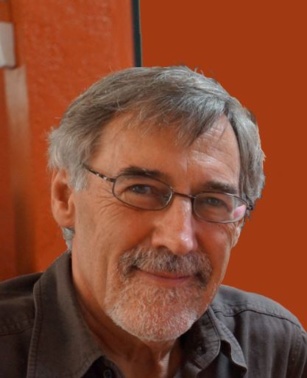
Javier San Martín
PhD in Philosophy by the Universidad Complutense (Madrid) with a thesis prepared at the Husserl Archives in Louvain and Freiburg. Since 1987 he has held the Chair of Philosophical Anthropology at Madrid’s Universidad Nacional de Educación a Distancia (UNED); he is currently Emeritus Professor of that University. Honorary President of the Spanish Phenomenological Society (SEFE), Associate Member of the Latin American Circle of Phenomenology (CLAFEN), and Director of the Journal Investigaciones fenomenológicas. He is the editor and author of several books and is author of numerous papers on Husserl’s and Ortega’s phenomenology, as well as on Philosophical Anthropology and Philosophy of Culture.
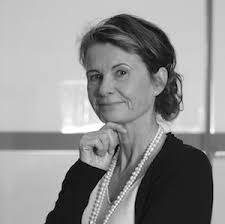
Sara Heinämaa
Professor and Researcher at the Universities of Jyväskylä and Helsinki. Her research focuses on the topics of embodiment, intersubjectivity, temporality, normality, emotions and sexual difference, the philosophies of Husserl, Merleau-Ponty, Sartre, Heidegger, Stein, Beauvoir, Levinas, and Irigaray. Her current research project, “Marginalization and Experience: Phenomenological Analyses of Normality and Abnormality” (MEPA), studies the foundations of human sociality and communality and the role of experiential normality and abnormality in the constitution of human Mitsein and intersubjectivity. She is the editor and author of several publications. Co-founder and two-term president of the Nordic Society for Phenomenology (NoSP). Director of the research community Subjectivity, Historicity, Communality (SHC 2012–2016) at the Universities of Jyväskylä and Helsinki.
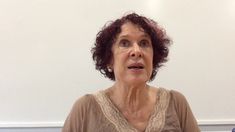
Mariflor Aguilar Rivero
Professor at the Universidad Nacional Autónoma de México (UNAM). Her areas of expertise are Philosophy of Social Sciences, Philosophy of Culture, and Subjectivity Critical Theory. Her work focuses on the “construction of subjectivity” within the context of critical theory, hermeneutics, psychoanalysis, and post structuralism, from the perspective of territory and violence. She is currently developing a philosophy of listening. She has coordinated nine collective volumes and is author of five books.
Carlos Emilio Gende
Tenure professor and research fellow at the Comahue National University (Neuquén, Argentina). Visiting professor at Mexico’s UNAM, UAM, UCM, Univ. Veracruzana and in the Philosophy PhD program at the University of Lanús. He is Director of the journal Horizontes filosóficos, and Deputy Director of Comahue’s Research Center in Philosophy of Sciences and Philosophical Hermeneutcs. Author of Lenguaje e interpretación en Paul Ricoeur (2005) and of La interpretación de las metáforas. Ensayos filosóficos del lenguaje desde el lenguaje (2019), among other publications.
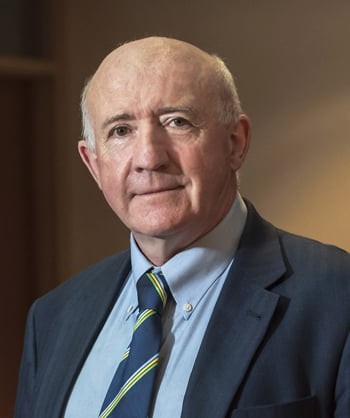
Dermot Moran
Inaugural holder of the Joseph Chair (Boston College) in Catholic Philosophy. He was previously Professor of Philosophy at University College Dublin. His research areas and publications deal with: Medieval Christian Philosophy and Contemporary European Philosophy (phenomenology, especially Edmund Husserl, Maurice Merleau-Ponty). He has been Visiting Professor at Yale University, Northwestern University, Rice University, and Connecticut College. He is Past President of the International Federation of Philosophical Studies (FISP), an elected member of the Institut International de Philosophie (IIP), and of the Royal Irish Academy. He is Founding Editor of The International Journal of Philosophical Studies (1993) and was Co-Editor (2007-2017) of the book series Contributions to Phenomenology (Springer). He was awarded the Royal Irish Academy Gold Medal in the Humanities in 2012, and an Honorary Doctoral Degree from the National and Kapodistrian University in Athens in 2015. He is Honorary Professor at Wuhan University, Nankai University (Tianjin), and Sun Yat Sen University (Guangzhou). Associate member of the Latin American Circle of Phenomenology (CLAFEN).
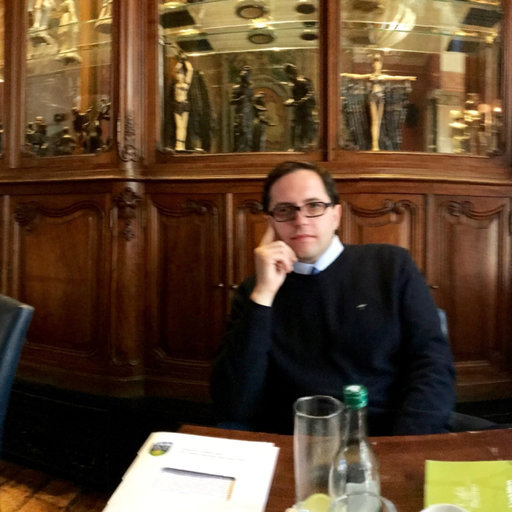
Hernán Inverso
He obtained his PhD in Philosophy at the University of Buenos Aires (UBA) where he is currently Professor of Philosophy. Fellow Researcher at Argentina’s National Scientific and Technological Research Council (CONICET). Former fellow of the Fulbright Commission and the German Academic Exchange Service (DAAD). Author of El mundo entre paréntesis. Una arqueología de las nociones de reducción y corporalidad (The World between Brackets. An Archaeology of the Notions of Reduction and Corporality) (Buenos Aires, 2015) and Fenomenología de lo inaparente (Phenomenology of the Inapparent) (Buenos Aires, 2018), awarded with the Mercier Prize 2020 (KU Leuven – UC Louvain). He has also published several papers in international journals of philosophy. He leads a research project at the University of Buenos Aires on phenomenology and corporeality, and on phenomenological methodology at the National Agency for Scientific and Technological Promotion (ANPCyT). He is an Ordinary Member of Círculo Latinoamericano de Fenomenología (CLAFEN).
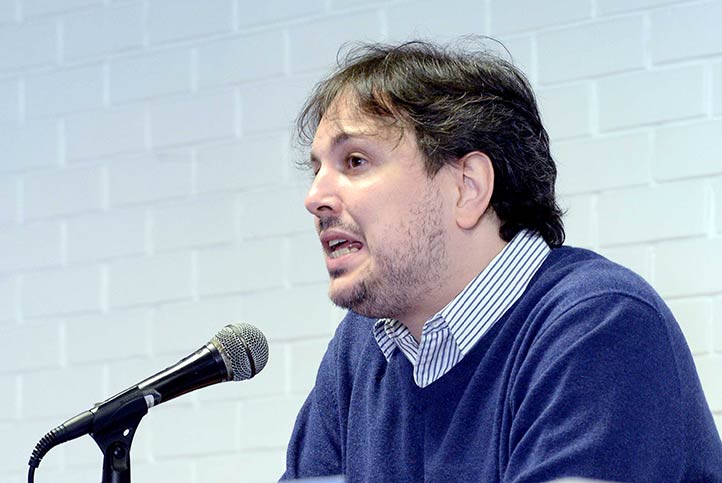
Luis Niel
Research fellow at the National Council of Scientific and Technical Research (CONICET, Argentina), and Professor at the Universidad Nacional del Litoral (UNL), Argentina. PhD in Philosophy by the University of Cologne (Cologne, Germany). Postdoctoral studies at Fordham University (USA). Research periods at Eichstätt University (Germany), Buenos Aires University (Argentina), and Georgetown University (USA). His recent publications include: Absoluter Fluss – Urprozess – Urzeitigung. Die untersten Stufen der Konstitution in Edmund Husserls Phänomenologie der Zeit (Würzburg, 2011) and Representación, objeto e intencionalidad en el siglo XIX: De Bolzano a Meinong (Buenos Aires, 2019). Research areas: Phenomenology, relation between Phenomenology and Analytic Philosophy, XIXth century Theoretical Philosophy, Contemporary Philosophy, Philosophy of Law. He is an Ordinary Member of the Latin American Circle of Phenomenology (CLAFEN).
Program
September 1
WELCOMING WORDS
Session I
Tareq Ayoub
Tareq Ayoub
Intersubjectivity
El juego: ¿un concepto ambiguo de la hermenéutica gadameriana?
Erika Whitney
Discussion
Break
Session II
Hacia una fundamentación hermenéutica de las leyes de la temporalidad de la espera y la expectativa
Joan González Guardiola
of Waiting and Expectation
Gadamer/Wittgenstein: Encuentros y desencuentros entre hermenéutica y filosofía del lenguaje ordinario
Cristóbal Balbontín
Hermeneutics and Ordinary Language Philosophy
Discussion
Break
Keynote Lecture
Del yo puro trascendental al ser humano trascendental
Javier San Martín
Being
Break
Session III
La hermenéutica del habitar en Heidegger: el problema del desarraigo
Francisco Márquez Osuna
Estrangement
Orientaciones hermenéuticas: propuesta para el quehacer hermenéutico
Marcelino Arias Sandí
Task
Discussion
Break
Keynote Lecture
Hermenéutica, diálogo y violencia
Mariflor Aguilar Rivero
Septembre 2
Session IV
Persona y cumplimiento
Mayra Salas
Hacia una fenomenología humanista: Eugenio Pucciarelli
Irene Breuer
El “problema” de la fenomenología de la religión. Una reflexión histórico-conceptual
Stefano Santasilia
Conceptual Reflection
Discussion
Break
Keynote Lecture
Sintiendo desde la profundidad: explicación husserliana del amor personal
Sara Heinämaa
Break
Session V
Husserl y el origen de nuestro campo de intereses: elementos para una fenomenología del interés
Andrea Scanziani
Phenomenology of Interest
La descripción husserliana del futuro. El aporte de los estudios sobre la voluntad
Celia Cabrera & Verónica Kretschel
Studies on the Will
Estados de ánimo y atmósferas en Edmund Husserl y Hermann Schmitz. Un análisis sobre la dimensión intersubjetiva de los sentimientos
Micaela Szeftel
Schmitz
Discussion
Break
Keynote Lecture
La fenomenología del tiempo: desde la intencionalidad de acto a las profundidades de la intencionalidad fluyente
Luis Niel
of Stream-Intentionality
Break
Keynote Lecture
Contribuciones hermenéuticas para tratar con la diversidad desde la lingüisticidad de la comprensión
Carlos Emilio Gende
Linguisticity of Understanding
September 3
Session VI
Cuerpo y vulnerabilidad existencial. Algunas consideraciones acerca de la alteridad corporal desde la fenomenología de Paul Ricoeur
Bryan Francisco Zúñiga Iturra
Alterity from Paul Ricouer’s Phenomenology
El cuerpo más allá del yo y el otro: hacia el pensamiento de una proto-comunidad en Merleau-Ponty
Paulina Morales Guzmán
Proto-Community in Merleau-Ponty
Sentidos del nacimiento en la fenomenología del cuerpo de M. Merleau-Ponty
Esteban A. García
Discussion
Break
Keynote Lecture
"Las cosas mismas" más allá de la generatividad. Consideraciones sobre el método fenomenológico
Hernán Inverso
the Phenomenological Method
Break
Session VII
Presentación Proyecto CIphER "Phenomenological Transfers"
Luz Ascárate, Raphael Aybar, Rodrigo Y. Sandoval
Break
Session VIII
Las reseñas “olvidadas” de Filosofía de la aritmética. Una nueva perspectiva sobre la relación entre Husserl y Frege
Luis Alberto Canela Morales
spective on the Relationship between Husserl and Frege
Fenomenología naturalizada y bioética
Leandro Catoggio
Pensar la corrupción política desde el sentido histórico de la fenomenología de Merleau-Ponty
Katherine Mansilla
Ponty’s Phenomenology
Discussion
Break
Keynote Lecture
La actitud personalista: Edmund Husserl, Max Scheler y Edith Stein
Dermot Moran
Stein
PALABRAS DE CLAUSURA
Ponentes
Tareq Ayoub
Researcher in philosophy and phenomenology. He has completed his MA (cum laude) at the Husserl Archives in KU Leuven with a thesis on the Völkische elements in Being and Time, with the intention to further understand Heidegger’s inherent conceptualization of communality, social ontology, and intersubjectivity. Tareq has been attending a series of conferences and workshops, working on multiple research questions on a phenomenological interpretation of communal hate and guilt, a phenomenology of religious attitude, and an understanding on the limitations of transcendental phenomenology, all within the scope of Husserl, Scheler, and Merleau-Ponty, among others.
Erika Whitney
Degree in Philosophy by the Universidad Nacional de Córdoba (Argentina). She has been awarded a KAAD (Katholischer Akademischer Ausländer-Dienst) scholarship, and is currently studying at the Albert-Ludwigs-Universität Freiburg.
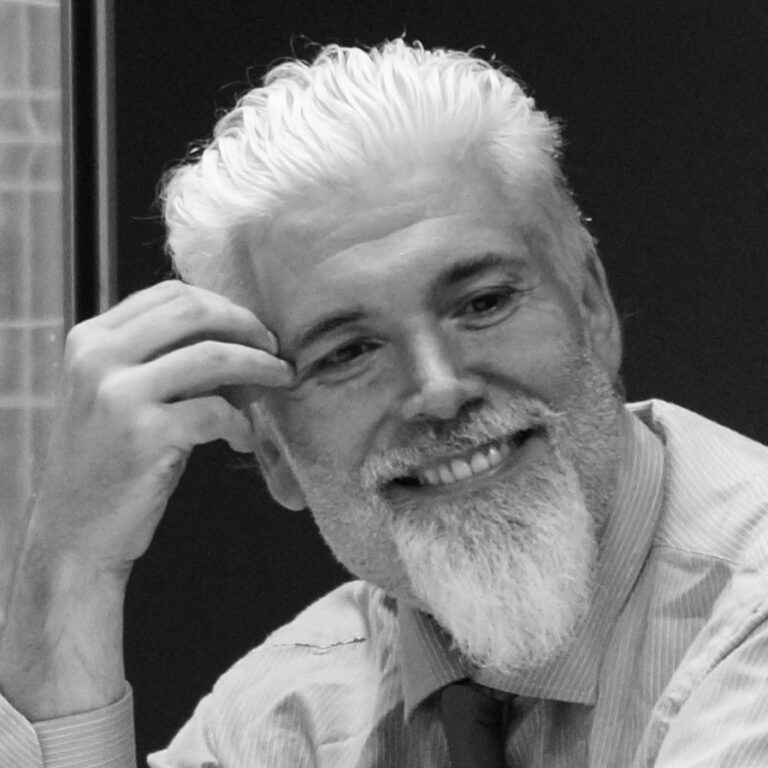
Joan González Guardiola
Extraordinary PhD. Award from the University of Barcelona with the thesis “Time and Measure. Phenomenological Investigations on Temporality and Chronometry.” He has been professor of Theory of Knowledge at the University of Barcelona, and is currently professor of Metaphysics at the University of the Balearic Islands. He has published Heidegger and Watches (ed. Encuentro, 2008) and Merchandise and Debt. Contributions of a Phenomenology of Money to the Foundation of the Monetary Theory (ed. Jitanjáfora, 2017). Secretary of the Spanish Society of Phenomenology, since 2012. Editor and translator, with Francesc Perenya Blasi, of the Catalan version of Edmund Husserl’s classic Cartesian Meditations.
Towards a Hermeneutical Grounding of the Laws of the Temporality of Waiting and Expectation
The goal of the present work consists in verifying, based on several fundamental texts of diverse religious and literary traditions, the legitimacy of establishing a law of time anticipation. The law reads as follows: “The determination of the content of an eschatological event is inversely proportional to the level of world-constitution whereby the waiting occurs.” In this research we will show how this law is fulfilled in several different descriptions of the waiting and expectation temporality, even in descriptions of wholly different cultural contexts and frameworks. This law may be hermeneutically obtained (a path that we will follow here), through the adequate interpretation of texts from very diverse traditions, as well as phenomenologically (through the adequate description of the phenomenology of waiting). We will show the double way to obtain this law proper to the anticipating experience.
Cristobal Balbontin
Ph.D. in Philosophy by the Universität J.W. Goethe and the Université Paris-Nanterre, under the supervision of Axel Honneth and Catherine Chalier, with a thesis titled “Levinas/Hegel and the Problem of Recognition”. He currently works as an auxiliary professor at the Universidad Austral de Chile and as a Fellow Researcher at the Institut des Recherches Philosophiques (IRePh), Université Paris-Nanterre. Some of his publications on phenomenology are: “Levinas penseur libertaire”, (Revue de philosophie de France et l’étranger); “Levinas et la question du politique. De quel État s’agit-il?” (Revue philosophique de Louvain); “Husserl y el problema de la intersubjetividad” (Revista Alpha), among other texts.
Gadamer/Wittgenstein: Agreements and Disagreements between Hermeneutics and Ordinary Language Philosophy
In philosophy, a certain conventional status questionis projects an image of analytic philosophy and hermeneutical phenomenology as antagonist. However, a few decades ago, neo-pragmatist interpretations of Wittgenstein began opening up the possibility of a dialogue with Gadamer’s hermeneutics. As it is well-known, Gadamer read Wittgenstein after the publishing of Truth and Method in 1960, and found his ideas relatable. We can see this coincidences, for example, when Gadamer addresses what is properly hermeneutical: to practice a critique of language to reconduct metaphysical matters “to the linguistic constitution of our being in the world”. Or when Gadamer understands hermeneutics as “interpretation,” referring to the practical behaviour of men in the world, sharing with Wittgenstein the idea that the meaning of language is shaped by social uses. Thus, our goal is to reflect on the coincidences and distances between both thinkers.
Francisco Márquez
PhD. and Masters degree in Philosophy by UNAM, on the subjects of Aesthetics and Philosophy of Religion, respectively. His research, “Groundings for an Aesthetic of the Sacred”, theme of his doctorate thesis, was awarded with an Honorable Mention during its sustenance. His academic interests focus on the problem of image, the co- implication between aesthetics and religion, the relationship between art, architecture and aesthetics, and contemporary thought.
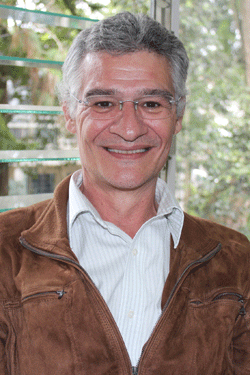
Marcelino Arias Sandi
PhD. in Philosophy by UNAM. Tenured professor at the Philosophy Faculty of the Universidad Veracruzana. His research areas are hermeneutics, justice and vulnerability, and contemporary ethics. He has published La universalidad de la hermenéutica: pretensión o rasgo fundamental, as well as many other texts on hermeneutics.
Mayra Salas Matienzo
Degree in Philosophy from PUCP. She is currently studying a Masters Degree in Philosophy at the same university. She has published academic articles in Areté and Hueso Húmero.
Irene Breuer
Degree in Architecture (1988) and Philosophy (2003) by the University of Buenos Aires, Argentina. 2012: PhD in Philosophy by the Bergische Universität Wuppertal (BUW) Germany. Until 2002 she worked in the profession and as Professor of Undergraduate and Graduate Studies in Architecture at the Universities of Buenos Aires, Belgrano, and others; from 2012 to 2017 as a professor of “Phenomenology and Theoretical Philosophy” at the BUW Philosophy Seminar. In 2019 she was awarded a research grant from the Deutscher Akademischer Austauschdienst (DAAD) based at the Buenos Aires National Academy of Sciences to carry out a study on the reception of Philosophical THURSDAY, SEPTEMBER 2 Lima | Madrid Anthropology in Argentina, especially by Eugenio Pucciarelli. She is currently preparing a broader project to be presented at the Deutsche Forschungsgemeinschaft (DFG). She has publications in the areas of architecture and phenomenology.
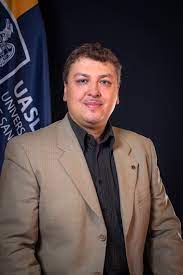
Stefano Santasilia
He obtained his PhD in Latin American Studies by “L’Orientale” Naples University (Italy), and in Philosophy by the Pontifical Comillas University (Spain). He is currently full-time Professor and coordinator of the Phenomenology of Religion Laboratory at the Autonomous University of St. Louis Potosí (Mexico), where he also coordinates the Laboratory of Phenomenology of Religion. He has published three monographs and various book chapters and papers in national and international journals. His research areas are: analysis and hermeneutics of the religious phenomenon, phenomenology and hermeneutics of body and space, philosophy of interculturality and peace. He is member of the Mexican Philosophical Association, the Philosophical Hispanic Association, the Latin American Circle of Phenomenology, the European Philosophy of Religion Society, and the international research group “Phenomenology of the Body” (lead by Agustin Serrano de Haro).
Celia Cabrera
PhD. in Philosophy from the University of Buenos Aires and Assistant Researcher at the National Council of Scientific and Technical Research (CONICET, Argentina). Her main area of research is Husserlian phenomenology, especially, the analyses of the structure and genesis of value consciousness, phenomenology of the will, ethics and theory of action. She carried out research stays at the Husserl Archive of the University of Cologne and at the Karl-Franzens University (Graz, Austria). She is the author of several articles on the subject, is co-editor of the book Fenomenología de la vida afectiva (together with Micaela Szeftel) and a member of the editor group of Ideas. She writes for the Revista de Filosofía Moderna y Contemporánea.
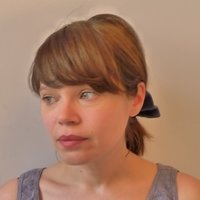
Verónica Kretschel
PhD. in Philosophy by the University of Buenos Aires and Assistant Researcher at the National Council of Scientific and Technical Research (CONICET, Argentina). She teaches the subject Contemporary Philosophy at the Faculty of Philosophy and Letters of the University of Buenos Aires, where she has conducted several seminars on phenomenological subjects, both at the undergraduate and graduate levels. Her research focuses on Edmund Husserl’s phenomenology of time and the problem of the representation of temporal consciousness. She is a member of research groups on related issues, and has published on the subject of time in well-known journals such as Comparative and Continental Philosophy Journal, Ideas y Valores, Areté, among others. She is part of the Editorial Committee of Ideas. She writes for the Revista de Filosofía Moderna y Contemporánea. She spent sabbaticals at the Husserl Archives in Cologne and at the Husserl Archives in Freiburg.
Andrea Scanziani
Doctor of Philosophy by the Università degli Studi di Milano. His doctoral thesis was devoted to the study of the origin of mathematical concepts in 19th century German philosophy, especially in the philosophy of Edmund Husserl. He carried out various research stays, in particular at the Universities of Freiburg and Cologne (Germany). Currently, he is a Postdoctoral Fellow at the Faculty of Philosophy of the St. Kliment Ohridski University in Sofia (Belgrade). He is the author of the Italian translation of volume XXXVIII of the Complete Works of Edmund Husserl (Husserliana), Wahrnehmung und Aufmerksamkeit (Percezione e Attenzione, Mimesis, Milano, 2016). His current research focuses on the philosophy of Edmund Husserl with an emphasis on the phenomenology of attention and he has published several articles on this topic.
Micaela Szeftel
PhD in Philosophy by the University of Buenos Aires and postdoctoral fellow of the National Council of Scientific and Technical Research (CONICET, Argentina). Her current research is focused in the area of the phenomenology of affectivity, with special emphasis on the intersubjective dimension of emotions in the philosophy of Michel Henry and Edmund Husserl. Her publications include the book Subjetividad y autoafección: la problemática de la temporalidad en la fenomenología de Michel Henry (Teseo, 2016), the co-edition (with Celia Cabrera) of the anthology Fenomenología de la vida afectiva (Sb, 2021 ), and the articles “Emociones, comunidad y cultura. Una lectura de la dimensión intersubjetiva de la afectividad a partir de la fenomenología de Michel Henry” (Devenires, 2021), “Le monde des sentiments. Une approche henrienne” (Presses Universitaires de Louvain, 2020), among others. She teaches philosophy classes at universities in Buenos Aires and is a member of the Husserl Group, the Michel Henry Study Program (UNGS), and the Seminary on Gender, Affects and Politics (SEGAP).
Mood-States and Atmospheres in Edmund Husserl and Hermann Schmitz
In phenomenology, feelings were traditionally conceived as subjective phenomena. However, Hermann Schmitz asserted that feelings should be understood as atmospheres, rather than as private internal states. This also means that feelings can be found in the world, just like objects of perception. In the second book of the Studien der Struktur des Bewusstseins (although also in other texts), Edmund Husserl affirms the existence of moods (Stimmungen), which do not imply an explicit reference to an object, but rather extend over a situation, coloring it affectionately. Taking the analyses of these philosophers into consideration, the aim of this work is to prove that affective atmospheres and mood-states must be presented as a complex of interpersonal habitualities. The affective history of a given community configures a horizon that gives previously and predetermines a current experience and predisposes the individual to notice certain feelings in himself and to ignore others that are not traditionally linked to the thing or situation experienced.
Bryan Zúñiga
Degree in Philosophy and Candidate for a Master’s Degree in Philosophy (Universidad de Chile). Student of the Training Diploma in Microphenomenological Interview at the Body Phenomenology Laboratory (2021-2022). Fellow of the National Commission of Scientific and Technological Research (2018-2020). Adherent member of the Chilean Association of Phenomenology and member of the Phenomenological Research Workshop of the University of Chile. His lines of research focus on the philosophical problems of the body and affectivity in the phenomenologies of Edmund Husserl, Emmanuel Levinas, and Henri Maldiney. His publications include: “Entre la imposible acogida y la irremisible existencia. Hacia una fenomenología del sufrimiento en Lévinas” (2019); “La fundamentación sensible de la experiencia predicativa. Un análisis del momento atencional en Investigaciones lógicas y Experiencia y juicio” (2019); and “Sentido de agencia y sus disrupciones en la depresión. Una perspectiva interdisciplinar” (2020) (co-authored with Penélope Pereira).
Paulina Morales
Master in Contemporary Thought by the Diego Portales University and Bachelor of Philosophy and Aesthetics from the Pontificia Universidad Católica de Chile. Her lines of research are phenomenological aesthetics and philosophy of art, interested in an aesthetic and philosophical reading of sports and dance. Specialized mainly in the work of Maurice Merleau-Ponty, in addition to its possible intersections with the work of authors such as Jean-Luc Nancy, Maurice Blanchot and Mikel Dufrenne. Author of the articles “From Insomnia in Blanchot to Chiasmus in Merleau-Ponty: Figures of Excess” (2019) and “The problem of a Technical Improvement in the Dancing Body” (2021), both published by Resonancias. Revista de filosofía. She was a Collaborator for the book Pensar el arte. Un recorrido histórico por las ideas estéticas (Ediciones UC 2019) of Prof. Andrea Potestà. She is a member of the Fondecyt project no. 1191155.
Esteban García
PhD in Philosophy by the University of Buenos Aires, with completed postgraduate studies at University College London. He works at the U.B.A. as Adjunct Professor of Gnoseology and at the National Council of Scientific and Technical Research (CONICET, Argentina) as an Independent Researcher. He is the author of the books Maurice Merleau-Ponty. Filosofía, corporalidad y percepción (2012) and Percepción y lectura en la filosofía de Simone Weil (2015), as well as numerous articles and chapters in the areas of phenomenology, modern philosophy and contemporary French philosophy. He is currently directing a group research project PICT (FONCyT / UBA) about “Contemporary Projections of the Phenomenology of Intercorporeality”.

Luz Ascárate
Luz ASCARATE is a non-tenured professor and researcher (ATER) at the University Paul Valéry Montpellier 3 and a PhD in philosophy from PUCP and EHESS. She is currently pursuing a second doctoral thesis, in metaphysics, under the supervision of Renaud Barbaras, at the University Paris 1 Pantheon-Sorbonne. Agrégée in philosophy, she is the author of the book Imaginer selon Paul Ricoeur. La phénoménologie à la rencontre de l’ontologie sociale (Paris, Hermann, 2022) and editorial secretary of Klēsis. Revue philosophique. She recently received the young researcher award from the Foundation de Treilles 2024 (France).
Raphael Aybar
Research associate at the Vienna Doctoral School of Philosophy. He studied philosophy (BA, MA) at PUCP and cognitive science (MSc) at the University of Vienna. His PhD research focuses on the foundational debates of cognitive science and the interdisciplinary collaboration of competing theoretical frameworks in the sciences of the mind. In particular, he studies the debate between internalist and externalist construals of the predictive processing framework. In addition, he was a lecturer of philosophy in several universities in Peru.
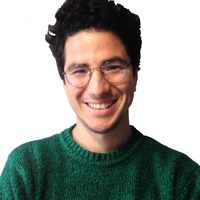
Rodrigo Y. Sandoval
Ph.D. candidate in Philosophy at the University of Cologne (Germany) and the Universidad Alberto Hurtado (Chile), with a dissertation on the Husserlian phenomenology of image- consciousness and phantasy. He has been a visiting researcher at the Husserl Archives of Cologne and Paris and is currently working at the Centro de Estudios Mediales of the Universidad Alberto Hurtado.
Luis Canela
PhD. in Philosophy by the Universidad Nacional Autónoma de México. Member of the National System of Researchers (Mexico). Collaborating member of the Latin American Circle of Phenomenology. Member of the Mexican Association of Logic and member of the Mexican Society of Metaphysics and Philosophy of Science. Visiting researcher at the Husserl-Archiv of the Universität zu Köln. Former CONACyT fellow (Masters and Doctorate). Jury in national and international philosophy journals since 2013. Professor at the undergraduate, master’s and doctorate levels. Author of multiple articles and soon of books as sole author. His lines of research are: transcendental phenomenology; analytical philosophy; philosophy of mathematics; ontology; philosophy of language, metaphysics and modal logic, mereology and philosophical foundations of set theory.
Leandro Catoggio
Phd. in Philosophy. Researcher at the National Council of Scientific and Technical Research (CONICET, Argentina), professor and researcher of the chairs of Modern Philosophy and Philosophical Anthropology at the National University of Mar del Plata (Argentina). He is currently participating as a researcher. He is a member of the Argentinian Association of Ethical Research (Regional subsection, Buenos Aires), and of the Rede de Pesquisa em Fenomenologia Naturalizada, Hermenêutica e Teorias da Enfermidade. His main fields of interest are: phenomenology and hermeneutics, applied ethics and anthropology. Related to these are his co-editions of the books: Decir el abismo. Lecturas de Heidegger y su obra en la década del ́30 (Mar del Plata, Eudem, 2010); Texto, significado y mundo. Aproximaciones hermenéuticas y fenomenológicas (Mar del Plata, Suarez, 2012); and Merleau-Ponty. Corporalidad, política, y otros problemas contemporáneos (Mar del Plata. UNMdP. 2016).
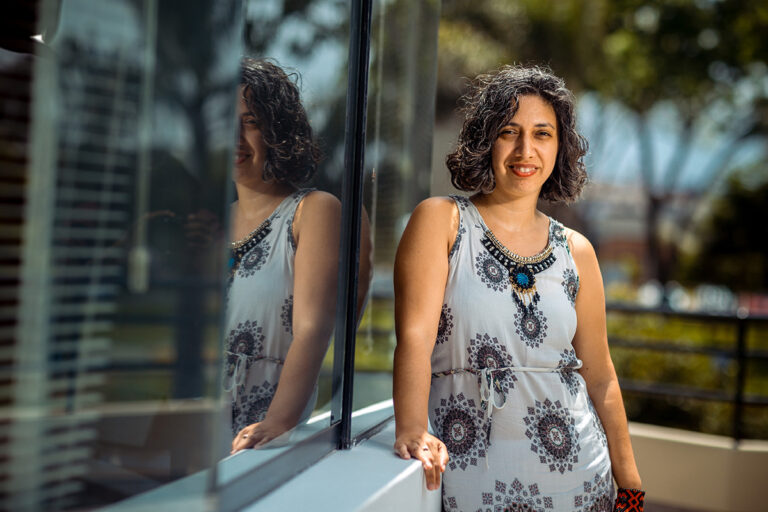
Katherine Mansilla
PhD. in Philosophy by the Pontificia Universidad Católica del Perú and Masters Degree in Political Sciences (with a Minor in Public Affairs) by the KU Leuven (Belgium). Member of the Peruvian Circle of Phenomenology and Hermeneutics (CIphER) and of the Latin American Circle of Phenomenology. Professor at the Humanities Department of PUCP and of the Social Sciences Department of the Universidad Antonio Ruiz de Montoya. She has published several papers on Merleau-Ponty’s phenomenology and the book Resignificar la violencia, el pensamiento político de Merleau-Ponty (México/Buenos Aires, SB/Universidad Autónoma del Estado de México, 1921).
Videos
Actas
Tema
Gadamer/Wittgenstein: Encuentros y desencuentros entre hermenéutica y filosofía del lenguaje ordinario
Eugenio Pucciarelli: Hacia una fenomenología pluralista y humanista
Contribuciones hermenéuticas para tratar con la diversidad desde la lingüisticidad de la comprensión
Hermenéutica del habitar: El problema del desarraigo en Heidegger
¿Deseas más información?
Déjanos tus datos en este formulario y nuestro equipo se pondrá en contacto contigo para darte mayor información sobre este evento.
